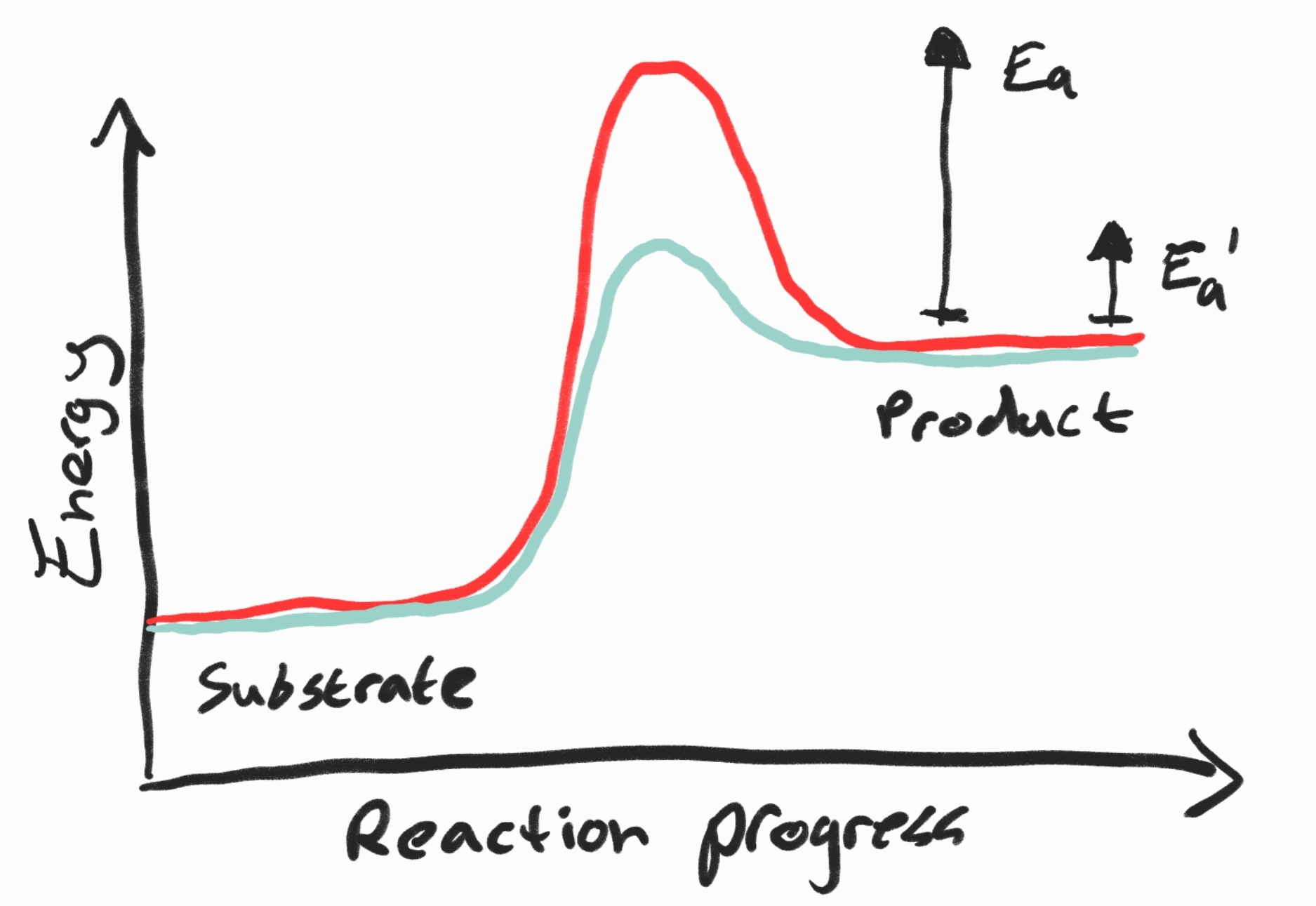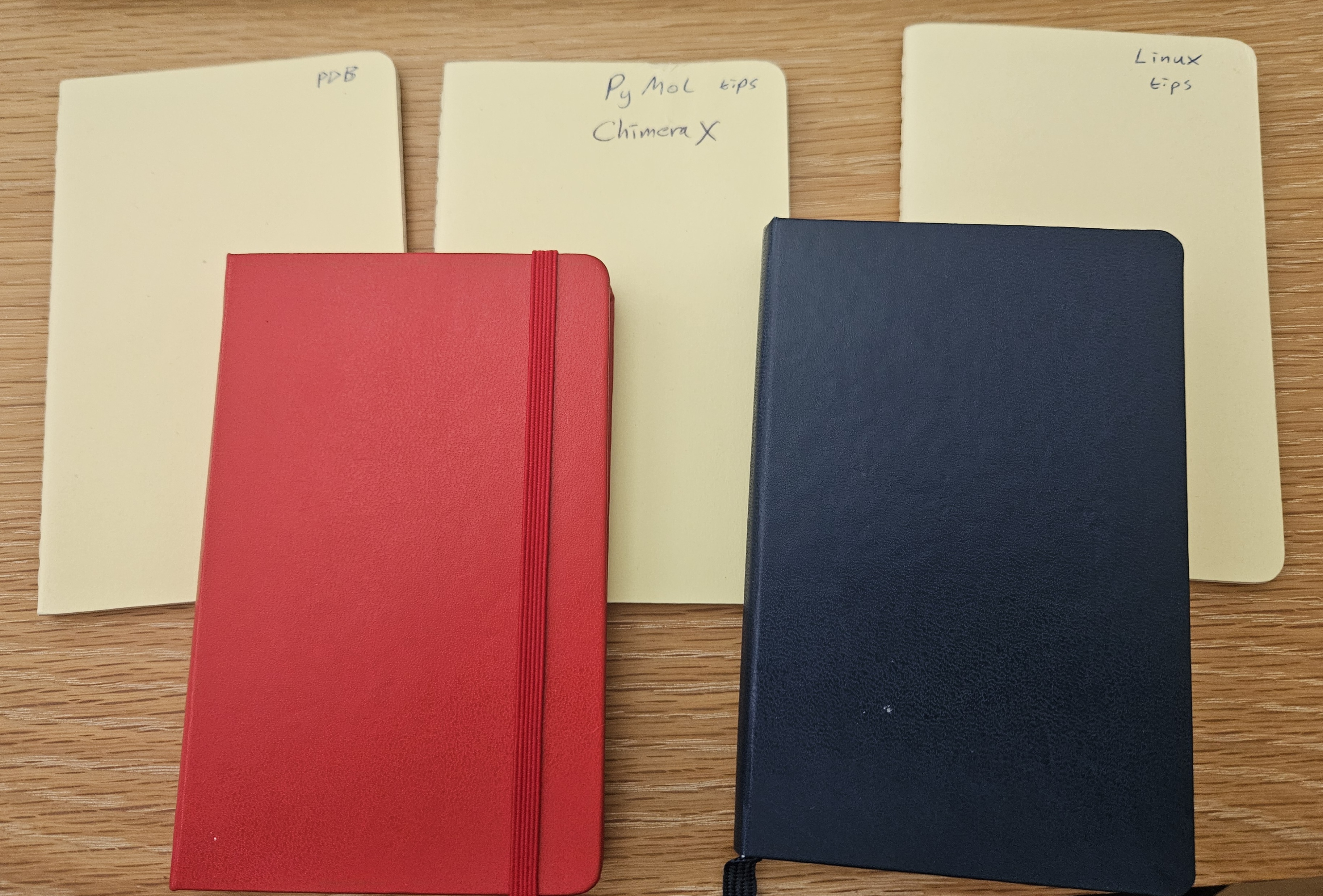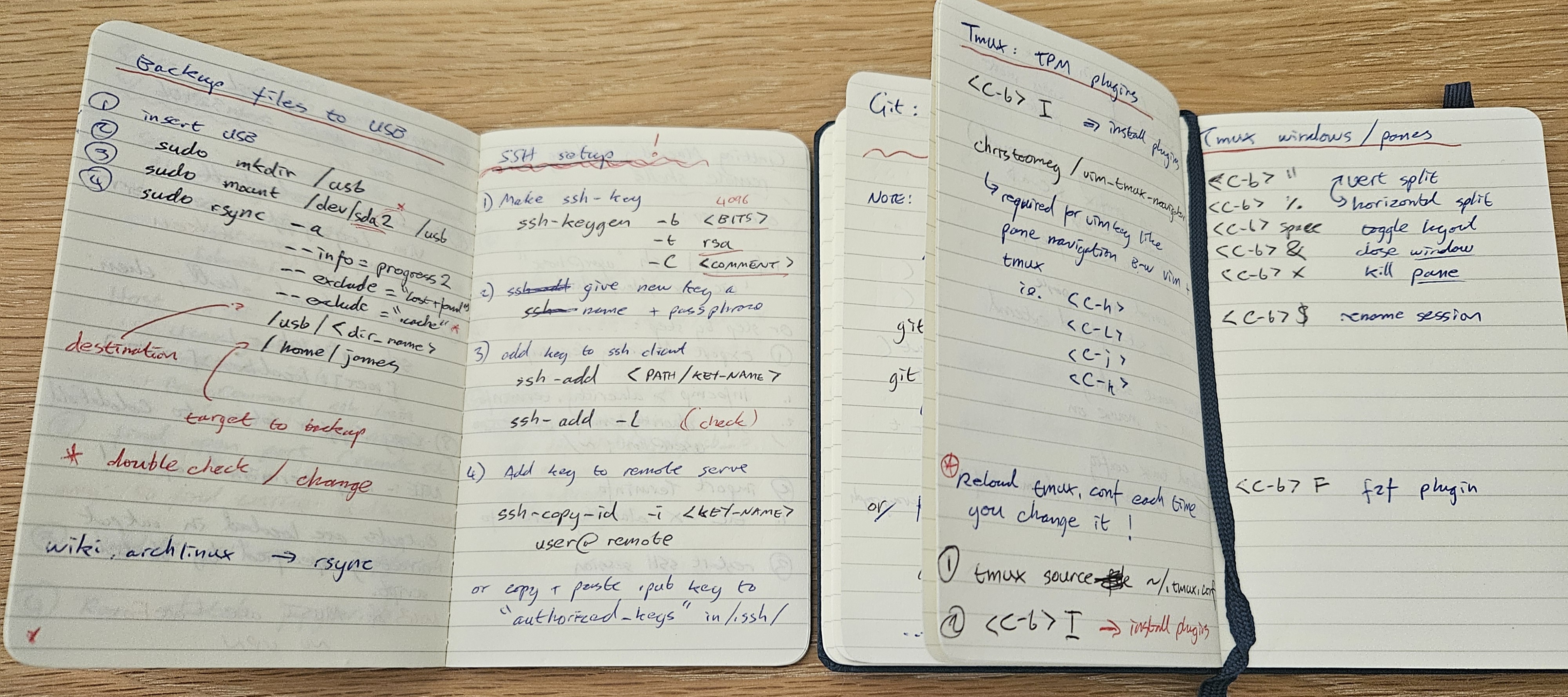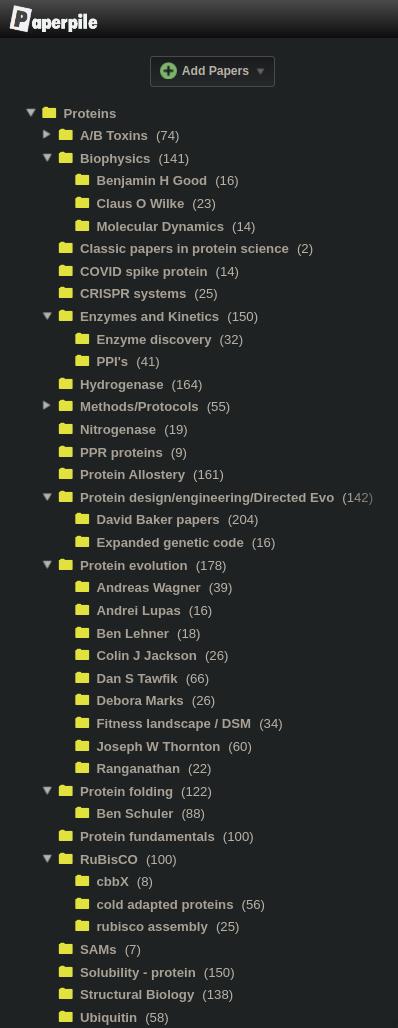Productivity tip: lower your "activation energy barriers"
Table of Contents
Going into 2024, I thought it would be fun to write about how I like to think about being productive, and how to slowly become more productive. The issue with being “productive” (however that’s defined), is that it requires actually doing things, and doing things requires energy. Not just physical energy (like for example, going to the gym regularly), but mental energy too. Often times it’s the mental energy, or even just the thought of all the mental energy we need to exert, that overwhelms us and prevents us from doing the task we know we should do. This is partly why we tend to procrastinate about doing things.
The analogy of the activation energy barrier

I’ve often thought of this mental energy as a sort of “activation energy” barrier as described in chemistry (symbolised as Ea). Let’s say there’s a chemical reaction where substrates react to form a higher energy product. It’s not enough for reaction to provide the same amount of energy stored in the final product; the reaction requires an excess amount of energy to overcome its activation energy.
Extending this analogy to the subject of productivity, we are similarly as stubborn as a substrates of a chemical reaction. We require “hidden” levels of energy to do something as simple as read a book, or write that manuscript we said we’d write. And as is usually the case, we always underestimate the amount of effort it will take to do something so simple, and conversely, we tend to overestimate the amount of energy we will have to do said task.
One of the solutions to this problem, both in chemistry and in daily life, is to lower the activation energy barrier (Ea$\prime$). What this usually boils down to is doing small things to make our future life easier and overall less stressful/energy demanding. I’m in no way a productivity God (there are many things I want to write but still haven’t), but overall I think my level of productivity is a lot better than it once was a decade ago! What follows is some examples from my own experience where I’ve ended up “lowering the activation energy barrier” of certain tasks, sometimes without realising it.
NOTE: After doing some Googling, it turns out the writer, James Clear, has also written about the concept of “activation energy” in terms of productivity. For whatever it’s worth, I came up with this concept independently of James Clear! Great minds think alike I suppose. Or perhaps this idea is such a derivative one that everyone thinks of it…
Lowering your mental activation energy barrier in practice
1. Keep a planner
 An example week from my Moleskine planner
An example week from my Moleskine planner
I swear by keeping a planner. Once a week (usually a Monday morning, or a Friday evening) I like to sit down and plan what I need to do each day of the coming work week. That includes scheduling time during certain parts of a day to do just the one task I hope to get done. I find that once I’ve planned out my time, I no longer have to constantly try to remember what I need to do; I can just read what I said I needed to do instead of expending mental energy trying to remember what I need to do.
2. Write down what you’ve learnt, even if you don’t think you need to
A very simple tip that I’ve had to learn the hard way, but now swear by: immediately write things down as soon as you can. This doesn’t just include things to put on a “to do” list, this involves all work that I may one day need to remember. As an example, I try to constantly write down small things I’ve learned about coding. Even if I think it’s painfully obvious, I know myself, and I know that after taking some time off from coding for a couple of weeks I will have forgotten those painfully obvious things. “How do I set-up a new git repo and set-up the ssh permissions again??”, I find these little questions to be stressful, hence raising my mental activation energy barrier. But if I’ve written down a list of instructions in a physical notebook, I know I can just reread that and get back up to speed.
I like to keep multiple small notebooks for specific topics to keep my notes somewhat organised. For example, I have a small notebook for Vim tips, one for bash and ssh tips, one for Python tips, one for ChimeraX tips, and so on. Is it overkill? Yes. But I have an easier time remembering things now.

 A look at some of my notebooks
A look at some of my notebooks
Could I just as easily Google some questions that I need a refresher on? Yes of course, but I personally find re-Googling something annoying and energy draining (though maybe that’s just me).
3. Get your workspace organised
This tip is obvious, but is extra relevant to people like myself who need to work at a lab bench. If your lab bench is a mess, it’s going to slow you down. If you don’t know where everything you need in the lab is, it’s going to slow you down. In other words, a disorganised lab space increases the activation energy barrier to getting work done. I like to have all the most important materials I need for work available at arms reach, if possible. That way I can focus on doing things instead of running around trying to find things.
4. Organise your documents
Another obvious tip, but one that I just know we all need a constant reminder of. This is especially important for all scientists, as we need to be keeping on top of the literature and keeping a bibliography. It’s very annoying knowing that you downloaded an important paper a while ago, but when it’s finally time you need it, you have to dig through a mess of unorganised titles in your reference management software (or worse, you have to dig though a mess of randomly named pdf’s in your downloads folder). So if you keep a library of papers, take the small amount of extra time to simply organise it in a way that will make it easier to find again in the future. Keep topic folders, and subtopic folders nested within those folders. Most reference management software these days lets you add “tags” to papers too, so add all the relevant keyword tags you need. I personally use Paperpile as a reference manager and am happy with it. It has a few key features which help reduce the activation energy barrier to keeping a bibliography, which include:
- Cloud storage, so I can access my library at work and home without any work on my part.
- A mobile app, so I can add papers to my library from my phone or tablet and am not restricted to only keeping my bibliography updated from my computer.
- The ability to keep searchable tags and notes on your references
- A built-in pdf reader with highlighting and note taking function.

My Paperpile folders for organising my protein science papers
Reference management aside, I try to keep all work-related documents (e.g. data, instrument manuals, reagent information) organised in folders on my Dropbox cloud storage drive.
5. Take the time to learn your tools first
Tasks are always more difficult if you don’t know how to use a certain tool that you need for said task. This may be a lab instrument, or it could be a piece of software. Whatever it is, make sure you take the time to learn how to actually use it first. Read the manual/documentation. Ask an experienced user to give you a hand. Is there a free beginners tutorial you could follow online? Follow it. Do some practice work first before trying more complicated things.
I find that most of the mental energy barrier I have towards doing a task is because I’m unsure how to actually use the tool I need to use in order to complete that task. However, if I’ve used an instrument in the lab many times, or I’m using software I’m familiar with, there’s no such mental energy barrier.
6. Break a task down into a plan of smaller steps
Some tasks are daunting if you don’t know exactly what you’re doing. Writing is a perfect example. It’s not enough to just plan that you’re going to start writing, say, the introduction to a new manuscript. What exactly are you hoping to write? Going in blind and coming up with the specifics of what you want to write as you go isn’t a great plan, and requires a lot of mental energy. So it makes sense to come up with an outline of what you want to write first. I often find that taking the time to write up a simple outline first makes writing a lot easier, because with an outline in hand, a more thorough and detailed outline can be iteratively written out of that. In this way, the writing grows out of the outline becoming beefier, where broader points are expanded into a number of more specific points. And at a certain point, writing sentences that flow logically from one to the next is just a matter of following the outline you’ve written.
This general strategy to carrying out tasks is similar to following a scientific protocol. Knowing the individual steps you need to take within a task is crucial to not only getting the task done, but reducing the mental energy barrier to tackling that task in the first place.
7. Exercise in the mornings
There are two main reasons why I think scheduling my workouts for the morning has been life changing for me. First, I find that if I plan to workout in the evening, I often end up missing it because I’m too tired, or there was some delay at work or on the commute which would push my workout back even later and make the prospect even more mentally exhausting. So clearly my activation energy barriers increase in the evening, and trying to do one more thing after work is pushing my mental strain to the limit. The second reason is that, once I’ve done my workout in the morning, I feel as though I’ve done the hardest thing of the day already, and now the entire rest of the day looks easy by comparison. Also, the endorphins from exercise are probably helping me stay stress free and relaxed going into the day, which also reduces my personal mental activation energy barriers.
Review where you think your barriers are
If something on your to-do list feels hard, or mentally daunting, or gives you the urge to procrastinate and delay doing it, it’s worth asking how you can make it easier. How can you reduce the activation energy barrier in your way? There are usually very obvious small things you can do to help, such as scheduling your day or drafting a step-by-step outline as discussed above. So be aware of your energy levels and reflect on what you could change.